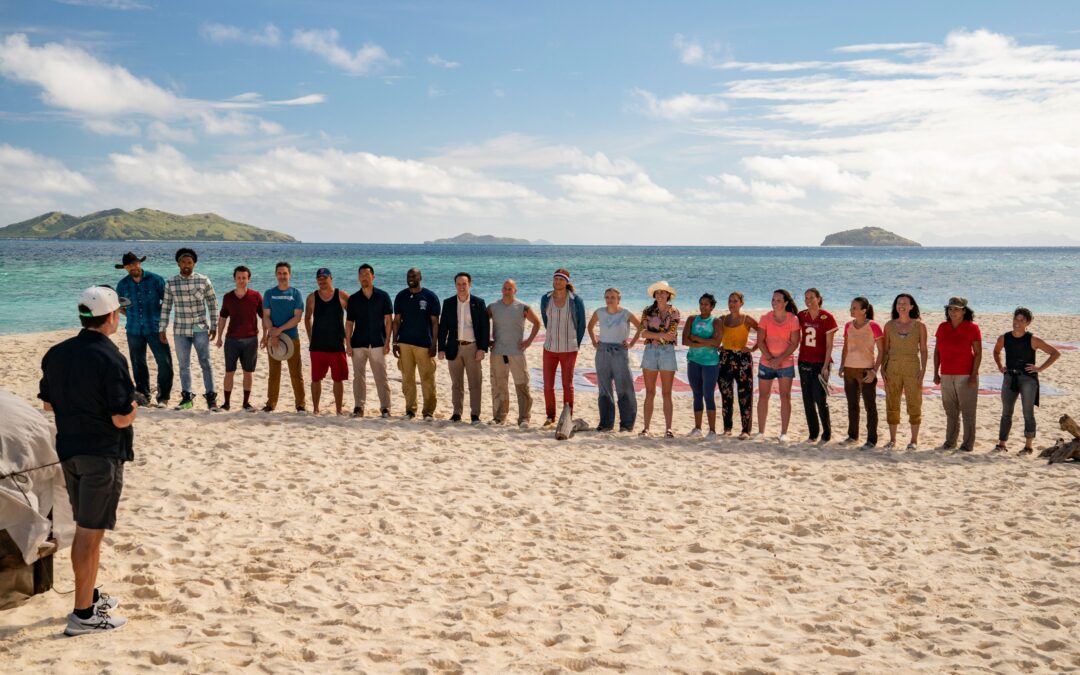It’s the biggest Survivor season ever, with the biggest cash prize in reality TV history.
So when plans were first set for Survivor’s 40th anniversary installment, Winners at War, the expectation was for an epic finale and reunion that would culminate with host Jeff Probst awarding a $2 million check — double the usual amount — live in front of a raucous studio audience filled with fans and family members.
And then the show was hit with its most diabolical twist yet.
CBS announced on April 13 that, due to the coronavirus, all live look-ins and reunion elements of the May 13 finale would be done remotely, with the 20 former winners all connecting from their own homes.
“During the finale, Jeff will also virtually connect by video with all 20 players to discuss the highlights of the season,” the announcement read.
So what exactly does that mean, and how will the reunion work?
“We are still figuring out exactly what we’re going to do,” Probst told Entertainment Weekly. “The rules change every day. At this point I can’t tell you what we’re planning, because we are still exploring options.”
While Survivor used to air a two-hour finale followed by a one-hour reunion, that format has evolved in the past few years to the point where the program airs live look-ins during the finale from the reunion stage in Los Angeles, with Probst often interviewing contestants as they are voted out or talking to audience members about what they just saw or hope to see next.
The final three and jury are then on the stage when Probst comes out to read the final votes, with the entire cast being brought out after for the reunion, which is now only about half an hour.
The best guess for the Winners at War season ender is that the show will try to retain its basic format, only via a video-chat service.
The host can still connect virtually to the players after they are eliminated during the finale, and read the votes as viewers see the faces of the final 3 reacting at home — think of it like an Oscars envelope-opening as you watch inset pictures of the nominees reacting as the winner is announced.
Then, for the reunion, either the entire cast can be simultaneously present for one of the most unwieldy online video chats imaginable, or the show could break the contestants up into smaller groups for more manageable discussions over different segments.
Either way, the show would almost assuredly pre-tape the entire thing to avoid any live technical glitches or to smooth-out any instances of people talking over each other, a common video chat nuisance that causes audio drops.
(Survivor pre-taped its reunion four hours early for the first time ever last season due to concerns over incidents of inappropriate touching during the Island of the Idols season and to make players feel more comfortable in terms of any unpredictable live audience reaction.)
While staging a virtual reunion is far from ideal for an anniversary season that brought back 20 of the game’s most epic winners ever, Probst promises that “We will, of course, do our best to make it fun.
A traditional live finale would have been awesome, but hey, this is Survivor, and now we’re having to deal with a twist of our own. We’ll get it all sorted!”
The good news is that, unlike many other shows who have had their spring seasons and finales interrupted due to COVID-19, Survivor taped all of Winners at War – except the revealing of the finale votes — last May and June in the Mamanuca Islands in Fiji.
And while filming on seasons 41 and 42 has already been delayed once (with further delays likely), at least the biggest season of the ultimate reality competition program will air uninterrupted.
“The important news it that on May 13 we will crown a winner of the greatest season in the history of Survivor,” says Probst. “And the winner will earn the first ever $2 million dollar prize!”
Even if they have to win it a few thousand miles away.
